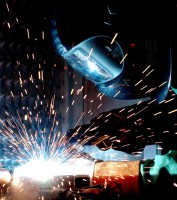
How can manufacturers close the skills gap in manufacturing and engineering?
Published: 03 August, 2022
Serena Cooper, QMS International, looks at closing the skills gap in manufacturing and engineering.
Serena Cooper, QMS International, looks at closing the skills gap in manufacturing and engineering.
It’s no secret that UK engineering and manufacturing are suffering a massive skills shortage. While open positions remain unfilled in many sectors, a report by Search Consultancy found that the engineering and manufacturing industry is the worst affected with 85% of businesses currently feeling the strain from a lack of skilled workers.
So, what are the major factors contributing to the skills gap, how is it affecting the industry and what can be done to close the skills gap?
What has caused the skills gap?
Changing workforce
The competition for talent is high and for many, there is also a struggle to secure the talent they need. An ageing workforce means experienced workers are retiring faster than new workers entering the industry. According to a government study,186,000 skilled engineers are needed annually until 2024 to plug the skills gap, and almost 20% of the current workforce is due to retire by 2026 according to the ECITB. As these older workers leave the workforce, they take valuable knowledge and skills with them.
Changing skill set
Not only has the pandemic disrupted training which has reduced the inflow of newly qualified staff but the demand for a tech-driven workforce means new workers need to be equipped with skills for the future. A report from the Institution of Engineering and Technology (IET) revealed that 71% of the UK engineering workforce who are experiencing internal skills gaps say it is down to missing engineering or technical skills.
With the spread of automation, digitalisation, and robotics in the manufacturing industry, roles in the supply chain are changing. The pace at which this technological change has advanced means a shortage in the skills required to keep up. Having people with the right skills will be key to driving the industry forwards.
Changing world
The events of the last few years have also played their part with the manufacturing industry still in recovery mode. The effects of Brexit have been felt, with 11% of the manufacturing sector’s workforce coming from the EU, the UK’s departure has intensified the skills shortages. Without the free flow of workers from EU countries, there is a shortage of skilled workers to plug the gap. On top of this, the additional trading costs and paperwork that have come with the UK’s departure from the EU have added more pressure on businesses.
It is a pressure that has been intensified by Covid-19 and in the aftermath of major upheaval from the pandemic, businesses continue to face challenges of complex global supply chains, changing demands and volatility in the industry.
What threat does the skills gap have on the manufacturing industry?
If the skills shortage continues, there may be severe consequences for manufacturers. With increased operational costs and reduced productivity, manufacturers unable to increase production levels and satisfy growing demands will struggle to compete, grow, and perhaps even survive.
With a shortage of workers, quality control and standards can easily slip and over time cause unhappy customers that may consider alternative suppliers.
Bridging the skills gap
Fixing the skills gap will require collaborative action across government, education, and business to create a long-term solution and talent pipeline. One thing is for sure, the manufacturing skills gap requires urgent attention. So, what can businesses do to bridge the skills gap in their business?
Training
Upskilling current workers and inspiring the next generation should be a key focus. Inviting young people to discover the wide range of jobs available and enticing them into learning STEM skills will be a key part of creating a workforce fit for the future and narrowing the skills gap.
Businesses need to ensure experienced workers are passing on their knowledge to the next generation before retiring. Businesses could consider setting up incentivised mentorship programmes and training to make sure these expert skills are not lost forever.
Best practice
Upskilling employees and ensuring training is up to date with best practices is essential. The skills gap creates an opportunity for your business to look at more efficient ways of working and continually drive improvement.
ISO 9001 is the world’s most recognised quality management system Standard. It is designed to help businesses of any size ensure they meet the needs of customers and other stakeholders, by having a framework in place that helps ensure consistent quality in the provision of goods and services.
ISO 9001 can be a powerful improvement tool to help businesses streamline and improve the efficiency of processes leading to cost savings and increases in profit. Having a quality management system in place can increase productivity and help employees in their day-to-day roles with limited disruption. Implementing the Standard can also increase customer satisfaction by reducing errors and boosting customer confidence in your ability to deliver.
Closing the skills gap will be vital for the manufacturing industry and the UK economy. And manufacturers that do mind the gap will build resilience for the future and have a competitive advantage.
https://www.linkedin.com/company/qms-international-plc/






